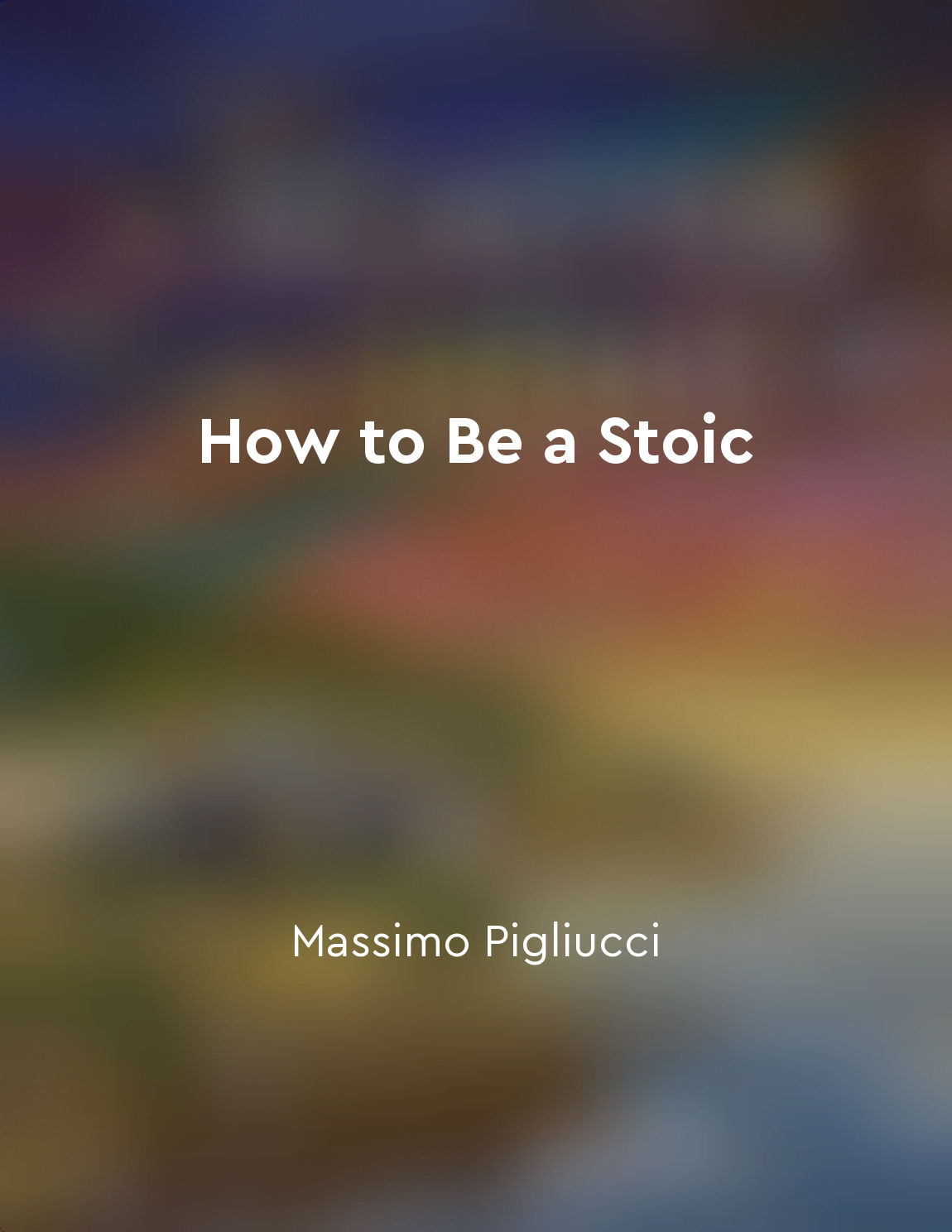Philosophy as a way of life from "summary" of How To Be a Stoic by Epictetus,Seneca,Marcus Aurelius
The Stoics believed that philosophy was not just an intellectual exercise, but a practical guide to living a good life. For them, philosophy was not meant to be studied in isolation, but to be applied to everyday life. It was a way of life, a set of principles to be lived by, rather than just theories to be debated or discussed. Epictetus emphasized the idea that philosophy should be a daily practice, something that informs every decision and action we take. It is not enough to simply read or think about philosophical ideas; we must actively apply them to our lives. He believed that true wisdom is not just knowing what is right, but actually doing what is right. Seneca also stressed the importance of philosophy as a way of life. He believed that philosophy should be practical and accessible to everyone, not just an academic pursuit for the elite. He thought that philosophy should be a tool for personal growth and self-improvement, helping individuals navigate the challenges and difficulties of life. Both Epictetus and Seneca believed that philosophy could provide a framework for making better choices and living a more meaningful life. They saw philosophy as a practical guide for achieving happiness and fulfillment, rather than an abstract, theoretical pursuit. By living according to philosophical principles, they believed that individuals could cultivate virtue, resilience, and inner peace.- Philosophy as a way of life means using philosophical principles to guide our actions, decisions, and attitudes. It is about embodying the values and virtues that we believe in, rather than just talking about them. It is a way of living deliberately and consciously, with a clear sense of purpose and direction. By embracing philosophy as a way of life, we can strive to become better, wiser, and more virtuous individuals.
Similar Posts

Cultivate a sense of inner peace and contentment
The Stoics believed that cultivating a sense of inner peace and contentment is crucial for leading a good and fulfilling life. ...
Stoicism offers a framework for navigating emotional challenges
Stoicism provides a valuable framework for individuals to effectively navigate emotional challenges. This philosophical school ...
Seek to live in accordance with your values and principles
Living in accordance with your values and principles is a fundamental concept that lies at the heart of Stoic philosophy. It is...
Acceptance of what is beyond our control
The Stoic philosophers Epictetus and Seneca both emphasized the importance of accepting things that are beyond our control. The...
Cultivation of wisdom through selfreflection
The path to wisdom, according to Seneca, is not found in the pursuit of external knowledge or the accumulation of facts, but ra...
Stoicism encouraged mindfulness and selfawareness
Stoicism has long been associated with the idea of mindfulness and self-awareness. The ancient Stoics believed that one should ...
Cultivating a sense of humility and perspective in the face of success and failure
The Stoics understood that success and failure are two sides of the same coin. To them, these external outcomes were ultimately...
Nurture your inner peace through tranquility of mind
In order to maintain our inner peace, we must prioritize the tranquility of our minds above all else. When we allow our minds t...
The philosophy of stoicism offered a path to inner peace and resilience
The philosophy of stoicism, as expounded by Zeno of Citium and Epictetus, was not a mere intellectual exercise - it was a pract...
Start the day with wisdom and intention
To begin our day with wisdom and intention is a practice that has been valued by ancient philosophers for centuries. By startin...

